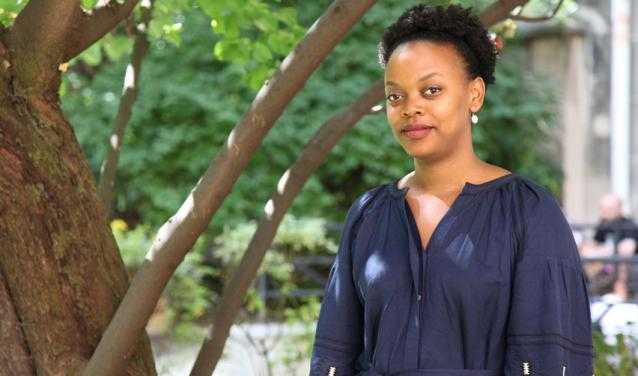Home>Investigating negotiation practices by African governments in Africa-China relations

16.10.2017
Investigating negotiation practices by African governments in Africa-China relations
Sciences Po PhD Folashadé Soulé-Kohndou has been appointed Research Fellow in International Relations at the University of Oxford (University College) for the 2017-2019 academic years. Through her research, she aims to challenge the popular belief that West African governments have little influence in negotiations with ‘strong’ countries such as China.
What does the position of research fellow at the University of Oxford entail?
As a research fellow at the University of Oxford (University College/Global Economic Governance programme), I will conduct a research project examining the strategies of three West African governments – Benin, Togo and Niger - in their negotiations with China over major infrastructure projects. My research questions the prevailing wisdom in international relations that bureaucracies and governments of ‘weak’ countries exert minimal influence when they negotiate with ‘strong’ countries such as China.
The project aims to challenge the assumption that French-speaking West African countries’ dependency on aid necessarily limits their bargaining capacity and influence in negotiations with China, and that African bureaucracies are passive in their relationship with China.
It also aims to re-evaluate the role of small states in international negotiations and analyse how negotiation varies within a country and across bureaucracies. The methodology will be very empirical and comparative, drawing on three case studies (Togo, Benin and Niger) to show how these parameters impact the outcome of negotiations.
Your current research project investigates asymmetrical negotiations between African states and China for infrastructure projects. Part of this project includes research for policy impact and engagement. What is it like conducting in-depth research in view of directly informing policy?
For the purposes of my research, I will also have regular opportunities to engage with senior policymakers and get specialist training on writing for and advising policymakers. I intend to strengthen my ability to produce academic research with real-world impact. Indeed, a particular goal of this research, beyond the empirical and theoretical insights it will yield, will be to derive practical lessons for African governments on how to maximise their influence in negotiations with China.
In addition to lecturing at the Sciences Po campus in Paris, you taught a discussion seminar in Sciences Po’s Europe-Africa programme in Reims. Can you tell us more about that experience?
I taught a discussion seminar on Africa and global politics for two years. The course objective was to introduce the students to Africa's international relations, African stakeholders' perspectives and strategies which challenge traditional academic approaches. The aim was to locate Africa's foreign policies not merely in processes of imperial domination but also in global political configurations in order to have an impact and weight in asymmetrical relations. The course was structured around several specific case studies spanning various African countries and their interactions in national, regional and global settings.
Working with students from the Europe-Africa programme was a great experience. Because they are from different backgrounds, they were able to share their diverse experiences with the class during our debates, creating a mutual-learning environment. However, the students had an uneven level of previous learning in international relations and some students, unfamiliar with the discussion seminar format which gives more room for debate, were expecting a traditional lecture – but overall it was a very rewarding experience.
Find out more